Donald Trump furious as Apple refuses to unlock Pensacola shooter’s iPhone
Donald Trump has lashed out at Apple for something the phone maker says it can’t do as it talks up its commitment to privacy.
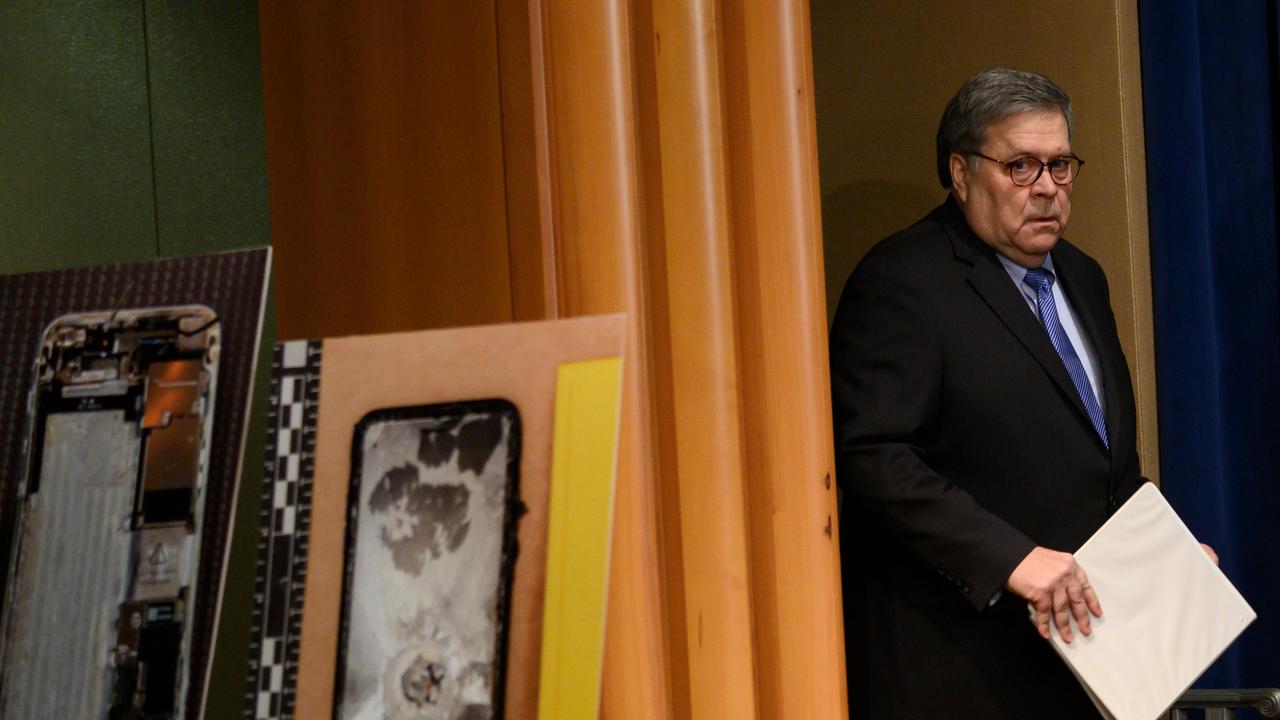
Donald Trump has accused Apple of “refusing to unlock” phones used by “killers, drug dealers and other violent criminal elements”.
It’s part of an ongoing row over US government demands for Apple to unlock two iPhones connected to last month’s shooting at a Pensacola, Florida naval base.
We are helping Apple all of the time on TRADE and so many other issues, and yet they refuse to unlock phones used by killers, drug dealers and other violent criminal elements. They will have to step up to the plate and help our great Country, NOW! MAKE AMERICA GREAT AGAIN.
— Donald J. Trump (@realDonaldTrump) January 14, 2020
The requests are part of an FBI investigation into the shooting, which left three dead and eight injured.
In a furious tweet, Mr Trump wrote: “We are helping Apple all of the time on TRADE and so many other issues.
“Yet they refuse to unlock phones used by killers, drug dealers and other violent criminal elements.
“They will have to step up to the plate and help our great Country NOW! MAKE AMERICA GREAT AGAIN.”
The tweet follows comments yesterday from the US Attorney-General, who declared the attack by a Saudi cadet as an act of Jihadist terror.
William Barr urged the tech giant to unlock two mobile phones used by gunman Mohammed Saeed Alshamrani, who killed three sailors in Florida last month and wounded eight others.
Mr Barr made the heated comments at a press conference, where he blasted the December 6 shooting as an “act of terrorism” motivated by “jihadist ideology”.
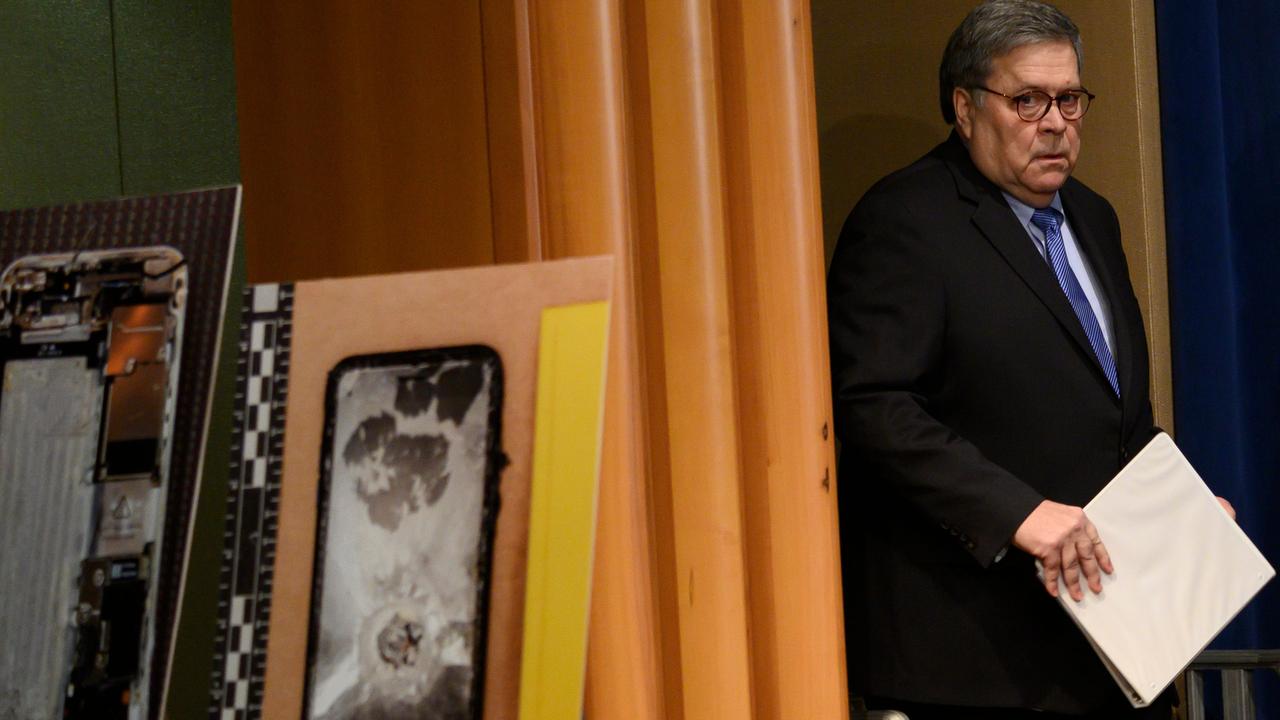
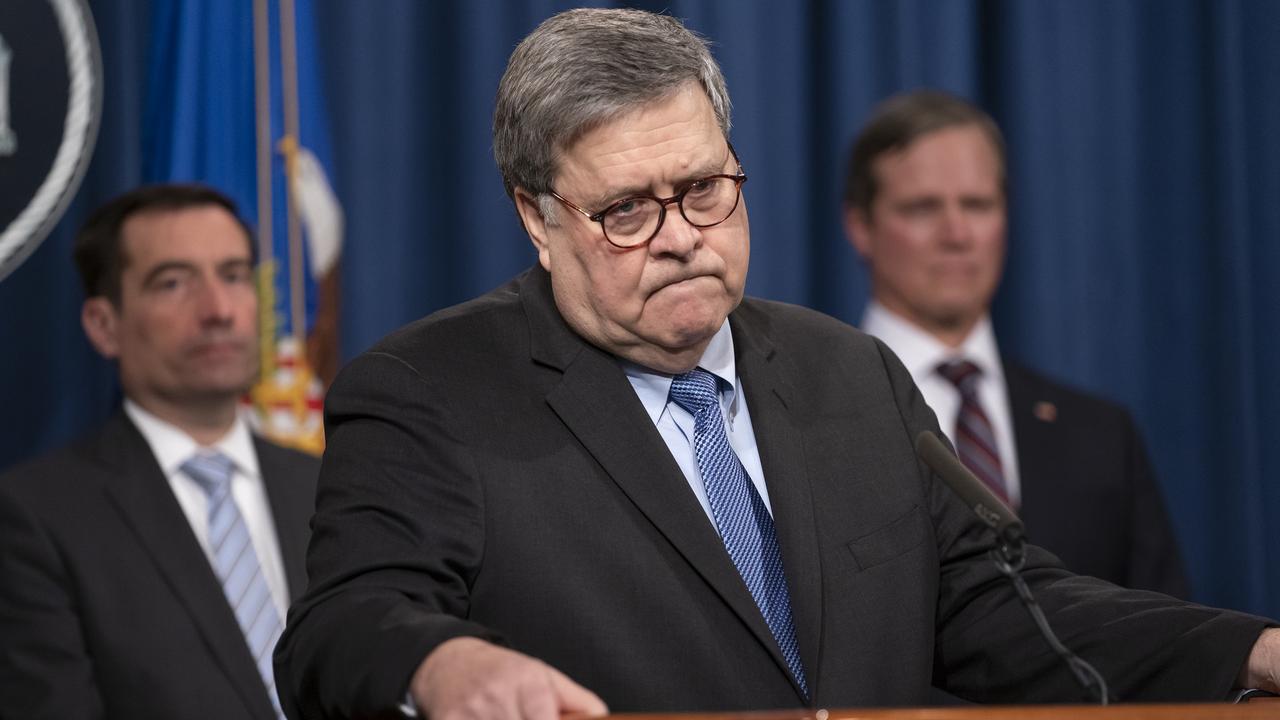
The Attorney-General also heavily criticised Apple for providing no “substantive assistance” to the ongoing investigation.
But the tech company says creating a “backdoor” in iPhones would set a dangerous precedent for user privacy and security, compromising the security of all devices.
Responding to the anger, Apple said it had helped the FBI with its investigations.
“Within hours of the FBI’s first request on December 6th, we produced a wide variety of information associated with the investigation,” Apple said in a statement.
“From December 7th through the 14th, we received six additional legal requests and in response provided information including iCloud backups, account information and transactional data for multiple accounts.
“We responded to each request promptly, often within hours, sharing information with FBI offices in Jacksonville, Pensacola and New York.
“The queries resulted in many gigabytes of information that we turned over to investigators. In every instance, we responded with all of the information that we had.”
Part of the problem is that Apple can’t unlock the iPhones even if it wanted to.
Doing so would require a backdoor to be built into all iPhone models that Apple maintains would help criminals hack iPhones and put users at risk.
“We have always maintained there is no such thing as a backdoor just for the good guys,” Apple explained.
“Backdoors can also be exploited by those who threaten our national security and the data security of our customers.”
RELATED: Trump cybersecurity Adviser needed Apple to unlock his phone
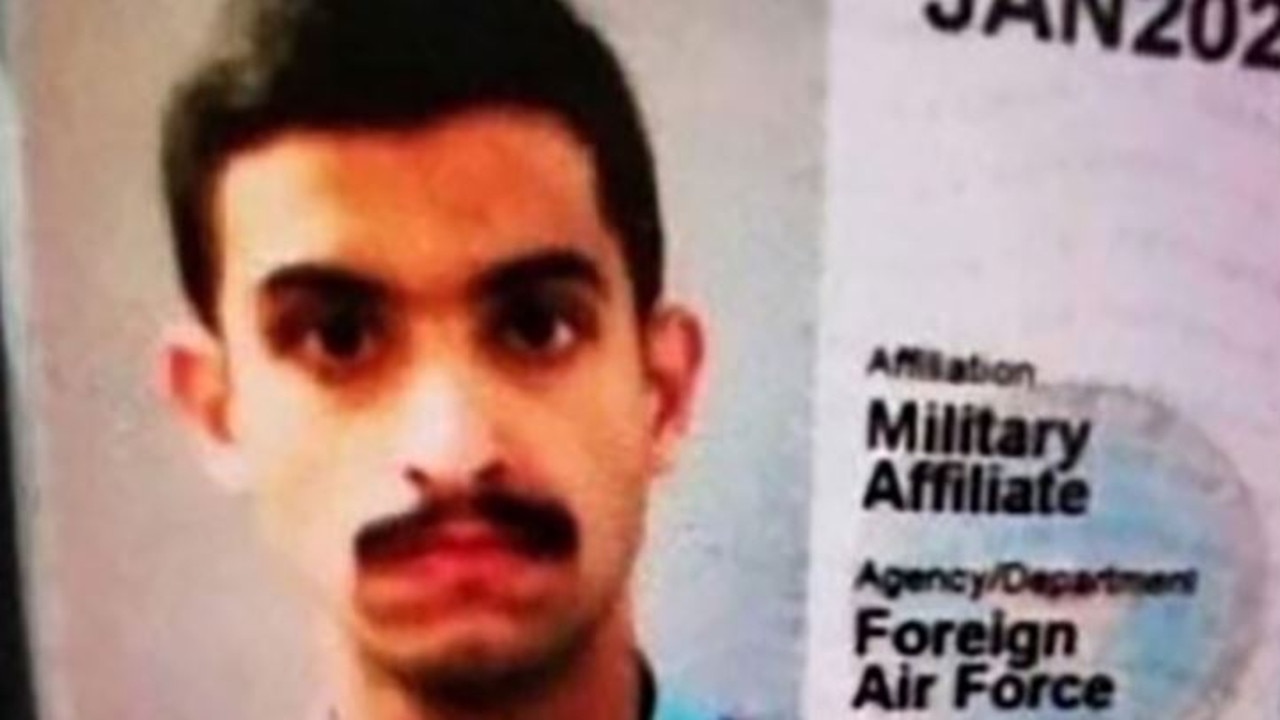
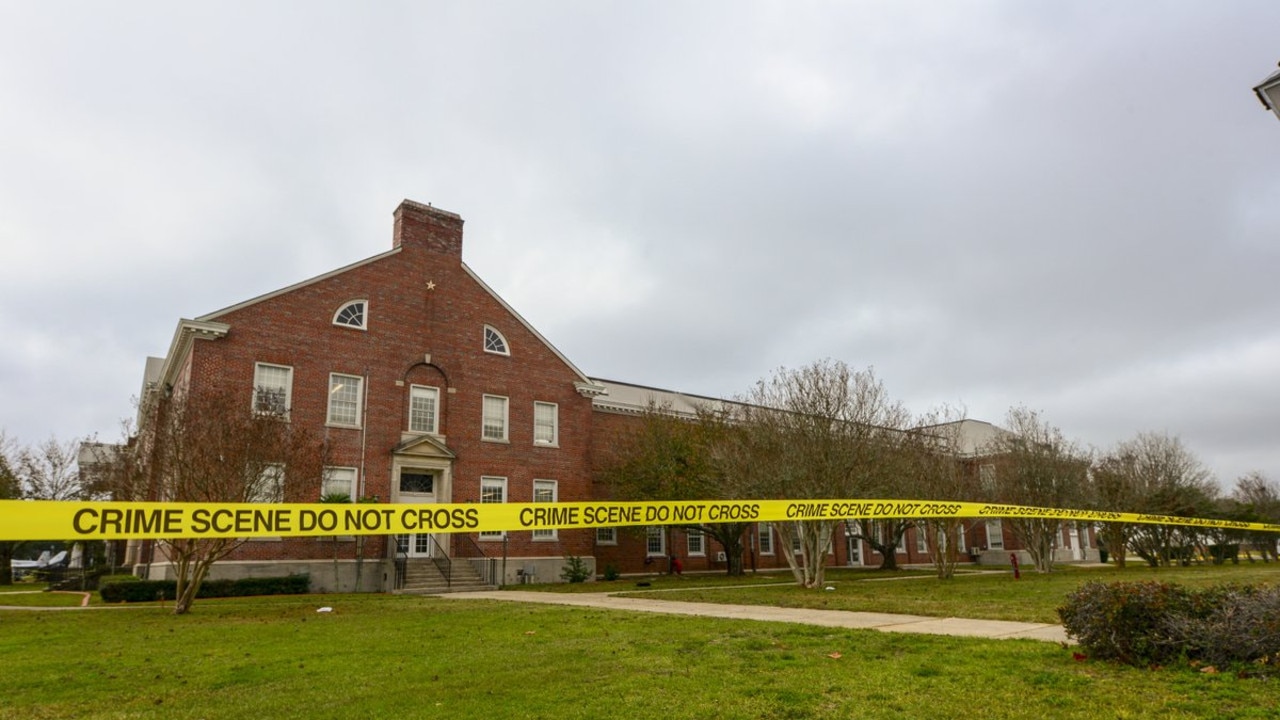
The affair mirrors a 2016 controversy where Apple publicly refused to unlock an iPhone used by one of the San Bernardino shooters.
Eventually, the FBI resorted to using a premium third-party tool that unlocked the iPhone using a complicated hacking technique.
The FBI is still investigating the Pensacola, Florida shooting and asked Apple to help them extract data from Alshamrani’s iPhone 7 and iPhone 5.
A letter from the FBI’s General Counsel Dana Boente states investigators weren’t able to gain access because the phones are locked and encrypted.
They need to get into encrypted apps, such as Signal or WhatsApp, as part of the investigation into the Florida shooting.
Court authorisation allowed them to search both the phones, but Mr Boente said they couldn’t gain access by guessing passwords.
Federal officials reportedly believe they may still be able to get data from one of the devices shot by a sheriff, The New York Times reports.
Yesterday, Mr Barr said: “This situation perfectly illustrates why it is critical that the public be able to get access to digital evidence.
“We don’t want to get into a world where we have to spend months and even years exhausting efforts when lives are in the balance.
“We should be able to get in when we have a warrant that establishes that criminal activity is under way.”
According to Apple, the tech firm has responded to more than 127,000 requests from US law enforcement over the past seven years.
This article originally appeared on The Sun and was reproduced with permission
Do you think the US or any government should be able to break into people’s phones? Let us know what you think in the comments below.



